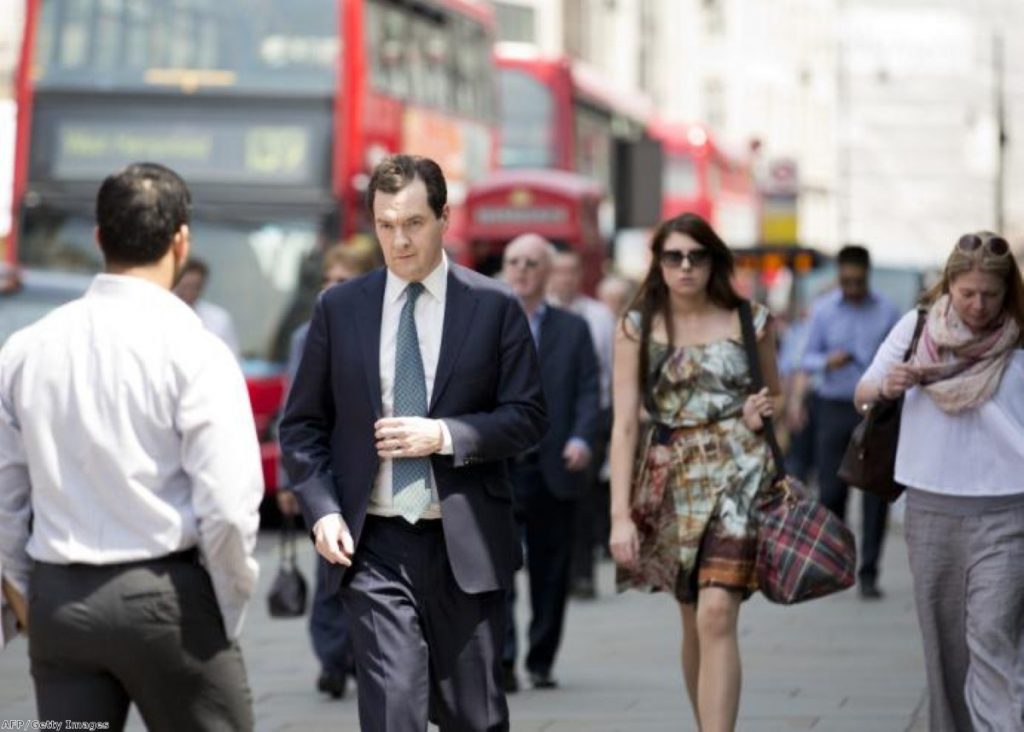Spending review preview: The nightmare Osborne can’t wake up from
It's a bad habit commentators and politicians always fall into when they're looking at Budgets and autumn statements. Viewing the 2015/16 spending review in isolation would definitely be a mistake, like only reading a handful of chapters in the middle of a very long – and very depressing – book.
Between 2010/11 and 2017/18 spending is going to be slashed by 18.4%. So far 8.9% of that has already been achieved, according to the Institute for Fiscal Studies (IFS). After 2016 there will be a further 7.6% of reductions to be allocated. The decisions we'll be looking at in this one-year spending review amount to cuts of just 2.8%.
This isn't to say that cuts of £11.5 billion aren't significant. They are. Still, it's wrong to view them in isolation. The low-hanging fruit of the initial cuts have all now been plucked, and that initial two-year period of political momentum has now come to an end.
Now the game has changed. The resolve of the coalition is time-limited. In 2010 the Conservatives and Liberal Democrats made great play of setting aside their political preoccupations in favour of the national interest. In 2013, a general election is on everyone's radars.


So the spending plans for a period covering three weeks of the current parliament and the first 11 months of the next one is bound to be fraught with politicking.
At the frontline of the struggle is a potential shift in spending priorities. This would not have been necessary had austerity only lasted the four years promised to voters in 2010. But because of weaker than expected growth, spending as a share of GDP has not fallen as planned. Hence the need for a longer period of cutbacks, and an election campaign shaped by the need to continue austerity.
A general election is an opportunity for political parties to set out – and, critically, change – their spending priorities. Take the Conservative party, which made a big deal of its promise to protect payouts to the elderly in 2010.
It's hard to exaggerate the impact that made on the doorstep. I remember witnessing countless conversations between wavering pensioners and Tory hopefuls where the message about preserving benefits like the winter fuel allowance was obviously critical.
A similar message doesn't seem realistic in 2015. A decision to end universal payouts to pensioners regardless of how well off they are could be made easier by a similar move from Labour, but will cost the Conservatives politically. George Osborne's rhetoric on Wednesday on this and the other ringfenced areas – NHS spending and international development – are an overture to the emerging politics of the 2015 campaign.
The coalition has been a little sneaky about this. Everyone in Westminster naturally made a big deal of the extension of their unity on spending plans; it means they cannot present truly independent plans about their respective handling of the nation's finances in the next parliament. Actually, the 2015/16 spending review has been structured in such a way as to give the Conservatives and Liberal Democrats as much room for independent politicking as possible.
In the weeks running up to Wednesday all the talk has been about troublemaking Cabinet ministers resisting cuts. The story has been one of percentages: a five per cent cut here, an eight per cent cut there. Only rarely (as in defence) has the debate extended into what these changes actually mean. It's after June 26th that this work really gets underway in earnest. "This is when the hard work of planning what to do within these limits, and preparing for the inevitable tough decisions in the coming parliament, starts in earnest for departments," the Institute for Government says.
Osborne will be sorely tempted to paper over these looming internal battles in his speech on Wednesday. He even referred to the event as his "Budget" on his appearance on BBC1's The Andrew Marr Show on Sunday morning. We can expect the same old tactics from the chancellor: shaping the story about a relatively small-scale part of the package to distract from the bigger picture.
Initial indications are that it's spending on infrastructure which will be filling that role this time round. The monstrous figure of £250 billion in the government's national infrastructure plan will be waved around. This is a big number which dwarves the £11.5 billion of spending cuts being imposed in 2015/16.
Don't let that fool you, though. Who wins or loses power in 2015 will be the party which takes voters with them on which public services they choose to protect from the harshest cuts.
The first clues can be expected when Osborne stands up for the statement he never wanted to deliver.

